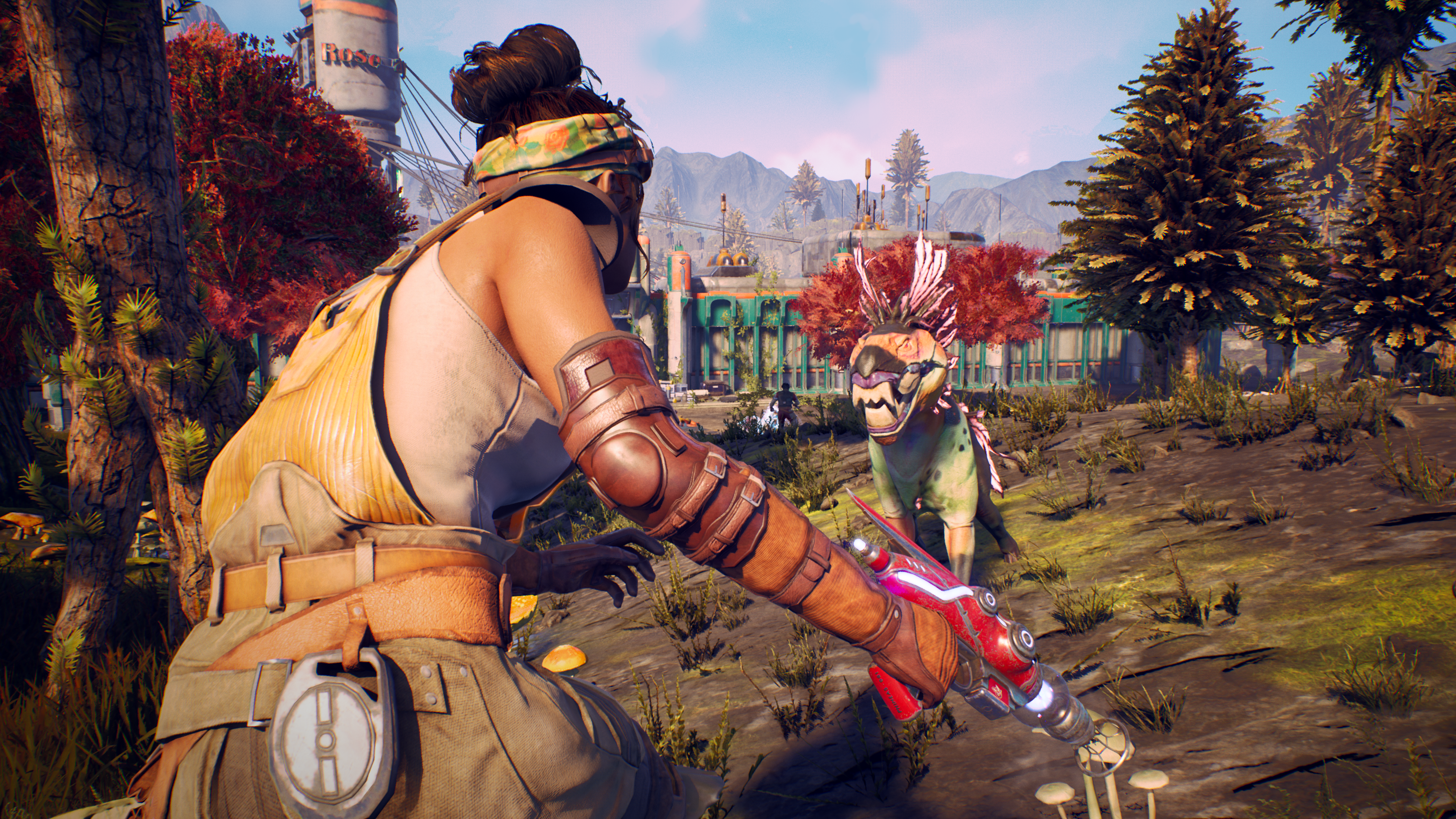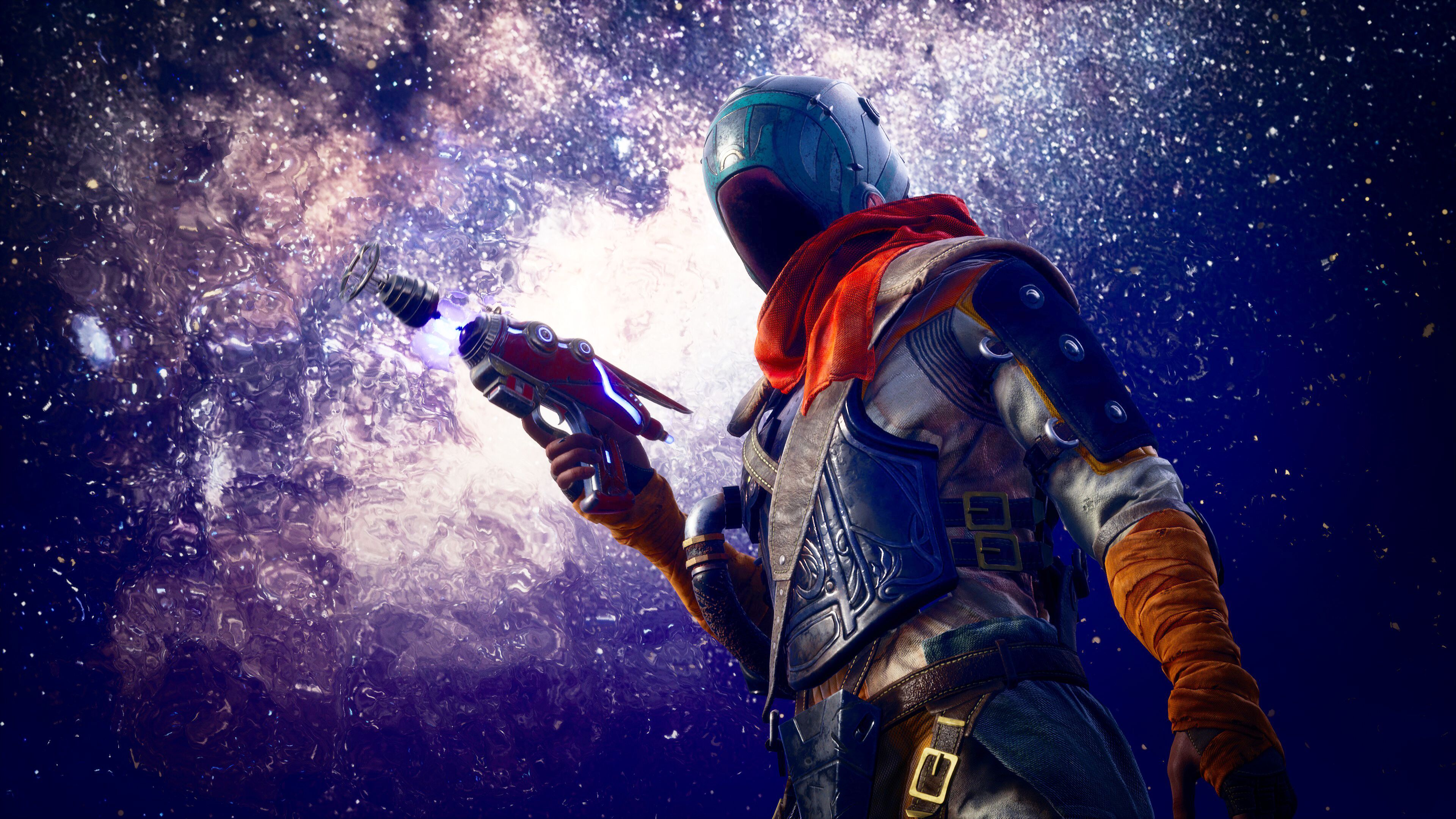When the first trailer dropped for The Outer Worlds at The Game Awards, I was enamored with the idea of a Fallout-type game set in space, and the fact that the original team behind Fallout was making a brand new game had me even more interested. It seemingly took clear inspiration from their previous game of this type, Fallout: New Vegas. Everything about the game’s world, mechanics, and the stories being told scream Fallout.
I haven’t been this enraptured by an RPG since I originally played CD Projekt Red’s The Witcher 3 in 2015. Upon booting it up for the first time, I wasn’t expecting to be immediately bombarded with menus regarding how to customize my character. The game doesn’t hold anything back in this respect. It wants you to make a character which feels wholly unique to you. This granted me the flexibility to create a character I always wanted to make in the modern Fallout games: a smooth-talking, sly, sneaky, melee character. This type of build never felt up to scratch in Bethesda’s Fallout games as they do in The Outer Worlds. In fact those builds in Fallout, and especially in The Elder Scrolls series, felt extremely broken.

Making this character was a special moment for me because it fulfilled a fantasy of mine since playing Fallout: New Vegas, playing a character who had the ability to diffuse situations instead of always resorting to violence. This paired with playing a melee build, honestly made for some interesting pairings. Avoiding violence was how I set out to play this game, and I was very happy to discover that it was indeed achievable. Have I stabbed someone during my time with The Outer Worlds? Yes, but I try to avoid it as much as possible. However, every now and again some NPC will act a fool, and that results in their unfortunate death.
The main story of The Outer Worlds is interesting, but it hasn’t gripped me quite as much as the side stories or even chatting with companions and other NPCs. This sprawling space epic has you travelling to diverse zones on planets in the Halcyon system. In the first zone, The Emerald Vale, there was a bartender who I chatted with. Her name was Amelia Kim, and her story helped to establish the cruel nature of these worlds. She told me how when she was a kid, she always dreamed of being a scientist. As time went on the corporations which ran the town told her that her dreams were dumb and she needed to consider a “more practical career.”

That interaction made clear that this game’s politics take center stage. This world’s cruelty manifests itself in its uber capitalist system that dehumanizes its people. They are fed in believing that their whole existence is to work, and that it’s really great to only live for work, actually. It’s fascinating, sometimes appalling, disgusting, and certainly made me question my motives for helping these people out.
You also get the opportunity to be among the uber-elite, economically entitled, and the 1%. In the city of Byzantium I interacted with an NPC. I met with someone who was bragging about how their grandfather lived this grandiose life because of the work that they put in to the Spacer’s Choice Corporation, and their work allowed for his kin to live in this city without having to perform any labor or work at all. This was a frustrating conversation to have because it was a completely different world from the time I previously spent with the game. Everyone I met before was someone who was struggling to make a name for themselves, and then this moment fell flat on its face. There was no commentary, instead slight jokes about the upper classes of this world.

There is a choice early on in the game that best showcases how well Obsidian adds weight to player choice. It involves two factions, the town of Edgewater which is run by Spacer’s Choice, and the people who have left that town who are labelled as “deserters.” You are tasked with deciding on which settlement to send power to through an underground power station, and it’s certainly a challenging one. “Do I send power to the people who are saying ‘Fuck the man’ or do I send the power to the people who have structure, more people to tend too, and are struggling with an increasing lack of supplies?” were the thoughts running through my mind. I weighed the consequences and instances of which these people were living. These deserters are living out on the frontier, and constantly dealing with bandits, as well as wildlife which is violent and territorial, no one was protecting themselves besides them. Whereas the people of Edgewater have walls to protect them. If I send power to the deserters, then the people of Edgewater will lose their way of living, but if I send the power to Edgewater, then the deserters might go back to the circle of dehumanization and exploitation which made them leave in the first place. It’s a lot, but the game seemingly didn’t give me any other options besides the two in front of me. It was just asking, “Who deserves this power?”
I decided to side with the Deserters, and in my heart I knew the decision I chose felt right. But going back to Edgewater, I was despised and the reality of my decision begin to show itself to me. These people had a stranger decide their fate, and for all I know I sent them to their death.

The more time I have spent with The Outer Worlds, the more I think about my decisions in real life. They have loomed over me like a dark cloud, because the impact of my decisions are felt. This game excels at using the pieces from other games of this type, and builds something great. Its best moments remind me of Fallout: New Vegas, but then twist my expectations in interesting ways. The game’s scope and what its trying to do is extremely different from games of this type. It initially attempts to tell you a message by exposing you to people who are down on their luck, but upon greeting the profiteers and actually carrying conversations with them, something felt off. The writing wasn’t offering anything critical about them or how they acquired this profit. What was here was bad jokes that didn’t offer anything insightful, and what was seemingly good commentary about the problems of capitalism quickly turned to a punchline, which made me extremely disappointed.

Seemingly every NPC in this game offers a unique perspective. Some have lived hard lives. Some have had a silver spoon for their entire life. The ones that have unique stories to tell are the ones who are down on their luck, because every interaction feels genuine and they are the ones who are often eager to tell their story. Meeting those who have that silver spoon just left a sour taste in my mouth because it was just playing off stereotypes instead of offering any critical commentary about the ills of capitalism and profiting off the skilled labor of others.
The Outer Worlds has taken the best parts from the modern Fallout games, as well as The Elder Scrolls, to make something of its own that is really fascinating. The game allows for flexibility and balance in characters builds which I haven’t seen work properly in a game of this type before. Conversations with most of the NPCs allowed for insightful looks into their world, but upon reaching a certain zone it all took a turn for the worse. Something I enjoyed doing in the game quickly turned into me trying to avoid people, and that put a bad taste in my mouth. The Outer Worlds is the game I wanted, but it’s messaging, which shows great promise at the start, comes out muddled by the end.
This game was played on a PlayStation 4 Pro system with a review code provided by a PR representative







